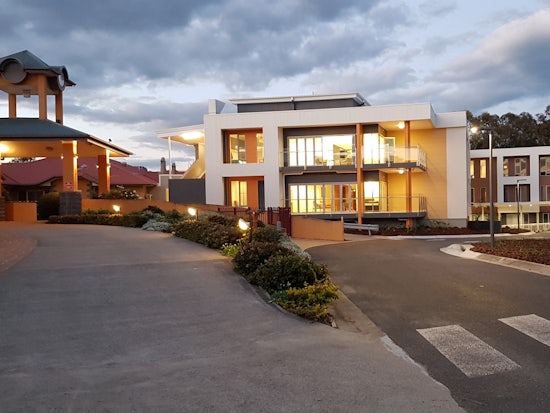MiCare merger means business
After ongoing discussions between partnering businesses of more than 10 years, MiCare and the Netherlands Retirement Village Association of Queensland (NRVAQ), the decision to merge was made and became official on July 1.

The NRVAQ facility (Source: MiCare)
The change will continue to see a range of aged care services including residential aged care, home care packages and independent living units carried out under the MiCare title while the village retains it’s name; Prins Willem Alexander.
Executive Director of MiCare Petra Neeleman says they are very excited about the merger.
“We are very proud of our success and wish to acknowledge the commitment of so many people who have contributed to these achievements,” Ms Neeleman says.
“MiCare’s vision is to become a national service provider and the merger will help to bring us one step closer to our goal.”
She also goes on to say that the change will enable the organisation to redirect funds into other areas.
“Both MiCare and NRVAQ have much in common, including our value systems and the communities we serve which is why we formalised our close working relationship,” Ms Neeleman says.
“We are working towards merging components of our business and we envisage that we will make efficiencies through economies of scale, thus enabling us to redirect more funds into direct service delivery.”
Currently MiCare provides ethnic support workers that understand culture in all areas of care from gardening, maintenance, transport, aged care preparation and planning as well as home help for children, youth, families, women and elders.
Historically, MiCare has focused more on Dutch Care but is branching out to other ethnic cultures.
Following 30 years of providing services specific to the Dutch community, and 10 years under the MiCare name, Ms Neeleman says everything the organisation is known for will remain the same.
“The merge will not see the conditions of contracts and agreements change and the same people providing the high quality service will remain,” Ms Neeleman adds.
“We are now providing a range of services to migrants and refugees in Victoria and Queensland too.”











![The new Aged Care Act exposure draft is slated for release in December of 2023, but advocates hope to see it rolled out on January 1, 2024. [Source: Shutterstock]](https://agedcareguide-assets.imgix.net/news/articles/wp/agedcareact__0811.jpg?fm=pjpg&w=520&format=auto&q=65)












Comments